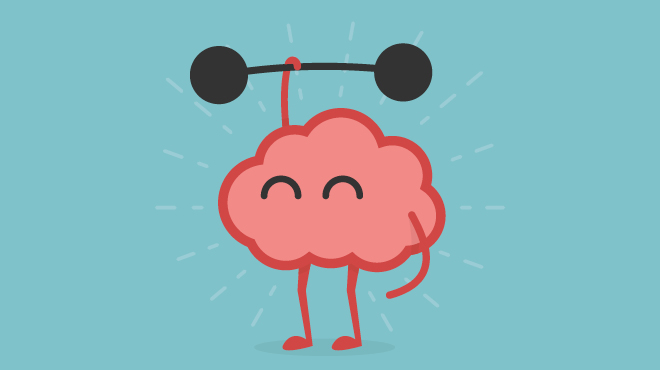
Why is brain health important?
Brain health is important for many reasons. The brain is responsible for all of our thoughts, emotions, and actions. It controls our ability to learn and remember information as well as regulates our body’s vital functions, such as heart rate and blood pressure. The brain is the center of our nervous system, which controls everything we do. However, it can be susceptible to a variety of diseases and disorders, such as Alzheimer’s disease, stroke, and depression. Therefore, it is important to take care of our brain health.
The risks of brain health
One of the listed diseases above is Alzeimer’s disease (AD). Alzeimer’s disease is one of many neurodegenerative diseases that result from neurological decline in brain function. Neurodegeneration is the progressive loss of structure or function of neurons. It can be caused by many things, including disease, trauma, and aging. Some of these factors are within our control, while others are not. It is important to take control of what we can when it comes to preventing neurodegenerative diseases. To take care of our brain, is to take care of our overall well-being.
Ways to protect the health of your brain
There are many ways to prevent neurodegeneration, including exercise, a healthy diet, supplement intake, and avoiding drugs and alcohol- all of which are within our control. There is no one-size-fits-all answer, and most of these should be discussed with a medical professional for personalization of medical needs/abilities, but here are some general principles that can help:
- Get regular exercise. Exercise has been shown to be protective against neurodegenerative diseases for a number of reasons. First, exercise increases levels of brain-derived neurotrophic factor (BDNF), a protein that promotes the growth and survival of neurons. Second, exercise reduces inflammation throughout the body, including in the brain. Inflammation is thought to contribute to the development of neurodegenerative diseases. Finally, exercise improves the health of blood vessels and promotes the delivery of nutrients and oxygen to the brain. All of these mechanisms work together to protect the brain against neurodegenerative diseases.
- Type of exercise: Combined aerobic and anaerobic exercise (cardio and weights). Moderate (4-5 RPE) to high (6-8 RPE) intensity exercise. This means that it should feel like a workout.
- If you can’t exercise to a moderate or high intensity- daily walking and overall increase in daily physical activity (includes chores, etc.) may help depending on your movement ability.
- Eat a healthy diet. Keeping blood sugar down by avoiding high sugars and carbs. Instead, a diet rich in fruits, vegetables, and healthy fats (avocados, coconut oil- in moderation, sesame or olive oil- cold pressed) can help protect the brain. Increasing foods with acetylcholine (runny egg yolks- over easy or sunny side up eggs only) is also beneficial for brain health and development.
- Avoid pesticides and harsh chemicals on food and in your environment. Exposure to pesticides can lead to changes in the structure and function of nerve cells, which can lead to neurodegenerative diseases such as Parkinson’s disease and Alzheimer’s disease.
- Take Probiotics. Gut health and brain health are inextricably linked. The gut is home to a complex and diverse community of microbes, many of which are essential for keeping the brain healthy and functioning properly. For example, gut microbes produce short-chain fatty acids that are critical for brain development and function. They also help to regulate the immune system, which is important for protecting the brain from inflammation. Additionally, gut microbes influence the production of neurotransmitters, which are essential for brain function. Therefore, it is clear that gut health is essential for brain health.
- Get adequate sleep. Sleep is important for brain health because it allows the brain to rest and recover from the day’s activities. During sleep, the brain is able to consolidate memories and repair itself. Sleep also helps to regulate hormones and metabolism.
- Reduce stress. Stress can contribute to neurodegenerative diseases by affecting the brain’s ability to regulate the release of neurotransmitters, which can lead to changes in brain function and structure. Stress can also cause inflammation, which has been linked to the development of neurodegenerative diseases.
- Practice brain exercises. Brain exercises help keep your mind sharp and your memory in good condition. By regularly exercising your brain, you can help improve your cognitive skills and delay the onset of age-related memory decline. Brain exercises can also help reduce your risk of developing Alzheimer’s disease and other forms of dementia.
- Don’t smoke & limit alcohol consumption. Smoking is a risk factor for many neurodegenerative diseases. Heavy alcohol use can lead to a build-up of toxins in the brain, which can damage brain cells and lead to problems with memory, thinking, and learning. Heavy alcohol use can also increase the risk of developing dementia, a degenerative brain disease that can lead to memory loss, confusion, and difficulty with everyday activities.
- Take supplements/herbs:
- omega-3 fatty acids (fish oil), vitamin D, and CoQ10, may help protect the brain.
- Vit E (as mixed tocopherols, not alpha-tocopherol) 400-1000IU, and Vit C 500-1500mg/d: reduced risk of AD
- Curcumin 400 mg/day: significantly improves performance on sustained attention and working memory tasks and improves gut health.
- Tumeric spice in diet: Curcumin supplement is derived from Turmeric spice
- Aged garlic extract (AGE) and S-allyl-cysteins (SAC): reduce risk for Alzheimer’s disease.
- Ashwagandha: reverses Alzheimer’s and Parkinson’s pathologies, protects against environmental neurotoxins and enhances memory
- Lemon Balm: Improved cognitive performance and mood
- Peppermint: improve memory and alertness
- Rosemary: improve memory and alertness
- Green tea: reduces anxiety, benefits memory, attention and brain function. Green tea might also reduce the risk of dementia, Alzheimer’s disease, mild cognitive impairment, or cognitive impairment.
- Ghrelin: amends the effect of high glucose on cognitive dysfunction.
- Sage (Salvia officinalis): may be effective for patients with mild to moderate AD
- Get regular medical checkups and know your family history. Regular checkups can help catch problems early. If you have a family history of neurodegenerative diseases, you may have an increased risk. You can discuss the former information with your doctor about how to prevent some of these issues if you do have family history of neurodegenerative diseases.
This blog was written by Taylor Kracht, LCMHCA
